When your hero becomes your teacher: my week with Octavia Butler
What I learned writing with the brilliant, prophetic author of "Parable of the Sower"
Dear Brave Soul, if you’re a new subscriber, thank you! 🙏🏼 We’re here to feel more joy and inspired despite these freakishly weird times. Today I honor Octavia Butler, born on this day, June 22, 1947 - a visionary author and my beloved writing teacher.
How does it feel to meet someone you idolize?
It’s Summer 1999. I walk into a steaming hot classroom on the 4th floor of Seattle Community College, site of the Clarion West Writers’ Workshop.1 My heart beats adrenaline. I’m a walking fever of creative excitement. I get to study writing with my most beloved author of speculative fiction, Octavia E. Butler!
She’s big (six feet tall).
She’s shy. And bold (a gifted visionary, she’s won many major awards, including the MacArthur genius grant).
She’s black (from humble beginnings, she upended the white man’s world of sci-fi).
She’s a sensitive, beautiful soul (her writing conveyed the deep pain she felt about the injustices she saw all around her).
I find a place at this round table among sixteen aspiring Sci-fi and fantasy writers. I’m thrilled to see three African American women. They became close companions during our six-week SFF writing “boot camp.” Each week, we write a new short story, read and critique the others’ work, and meet 1:1 with our instructor.
Meeting Ms. Butler through her work
I was writing my first fantasy novel2 when dear friends in the black American arts community loaned me “Parable of the Sower”3 in 1993. I devoured this novel, as it seemed to reveal the future outcomes of our trajectory at that time. Not pretty.
Set in 2024, “Parable” foretells climate change, social injustice, drug wars, wealth disparity, and random violence. But it’s not a hopeless dystopia. Told through the journals of a highly empathic teen who has both insight and capacity to act, Lauren Olamina sees what humans need to thrive again. She writes her own gospel of Earthseed, devoted to her belief in the forces of Change:
“All that you touch You Change.
All that you Change Changes you.
The only lasting truth is Change.
God is Change.”
In Parable of the Talents, her sequel written in 1998, a righteous presidential candidate uses an eerily familiar slogan: "Help Us Make America Great Again." Butler’s ability to channel the future was so spot on, it’s scary.
I read all of her work, because she moved my heart. I wept at the brutal, yet compassionate story of “Kindred;” a modern black woman is torn back in time to rescue her ancestor, the white son of a plantation owner who tortured her as a slave.
Octavia moved my mind, too - as she deeply considered the human condition. I so admired her wild voice and far-reaching vision in “Wild Seed.” This tale of immortal African shapeshifters and their breeding project embodies her views of power, human dominance, and hierarchy - a lifelong theme of her works until her death in 2006.
"I began writing about power because I had so little."
I had much to learn from her: a devoted engineer of her own story
She wrote inspiring positive messages in her journals, and repeated these phrases often, until they became truth. She shared her inspiring passion for story and many writing insights with us. I aspire to create intense emotional drive and visual writing found in her work. Here’s a few snippets from her journals, at the Huntingon Library.4
A rare gift: when your favorite author gives you notes on your work
All too soon, our week sharing space with Octavia’s writing brilliance winds down. I’m sitting with Octavia in her sparse room, chatting about my short story. It’s about an elder in the future who, on her deathbed, goes back in time to save her younger self from a premature, violent end. It needed work.
Here’s Octavia’s notes on my story.
I’m still crafting the best way to shape the story of saving my younger self (in the turning point of my current novel, my Soul helps me survive jumping naked from a van speeding down the highway.) I’m still drawing from the deep well of Octavia’s imagination, her guidance, her wild voice. Her uncanny abilty to predict and reveal our human story through speculative fiction. Thank you, Octavia!
🗣️ Who are the visionary heroes that shaped you? How do you honor their wisdom in your work? Have you read Octavia Butler?
Thank you for being your juicy, joyful, compassionate, wise self, darlin.’ 💗 If this post lights you up, please like, comment, share with a friend. If you want to feel more joyful and inspired to share your wild, creative voice - medicine for these crazy times - please subscribe. I need just ten beautiful souls to reach my goal of 500 subscribers; it’s my birthday week, too (I just turned 66). Thank you so much!
More to come,
Clarion West Writers’ Workshop is still going strong. We’ll celebrate Octavia Monday.
Parable of the Sower has become massively influential since its publication in 1993. More about Butler and her works at her official website.
Thanks to Jack Cline at School of Love for his lovely adventure in Octavia’s archives.

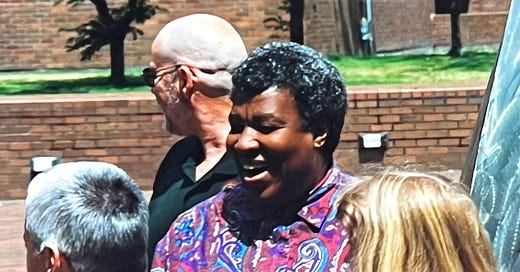


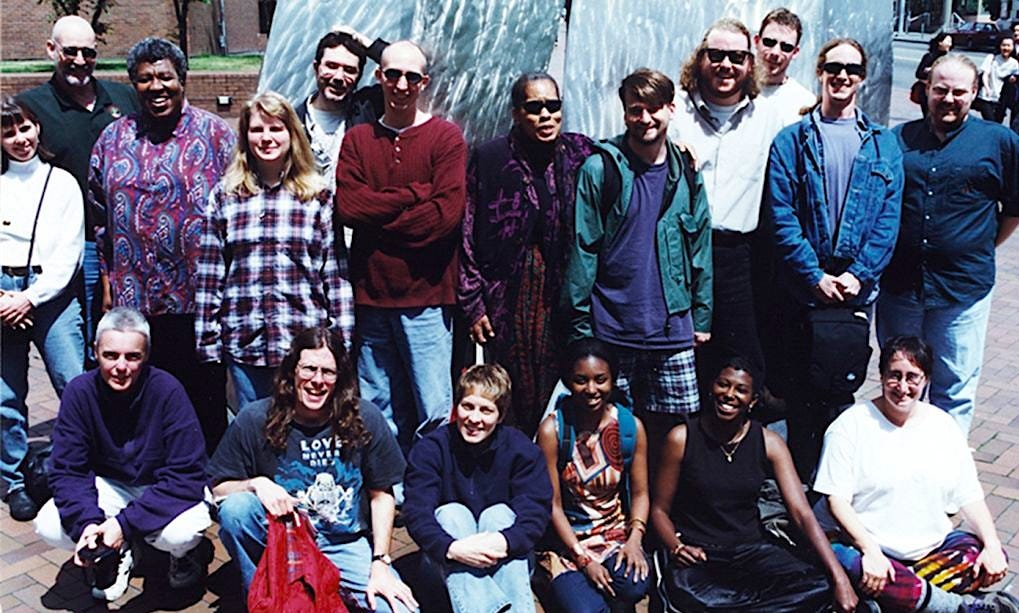
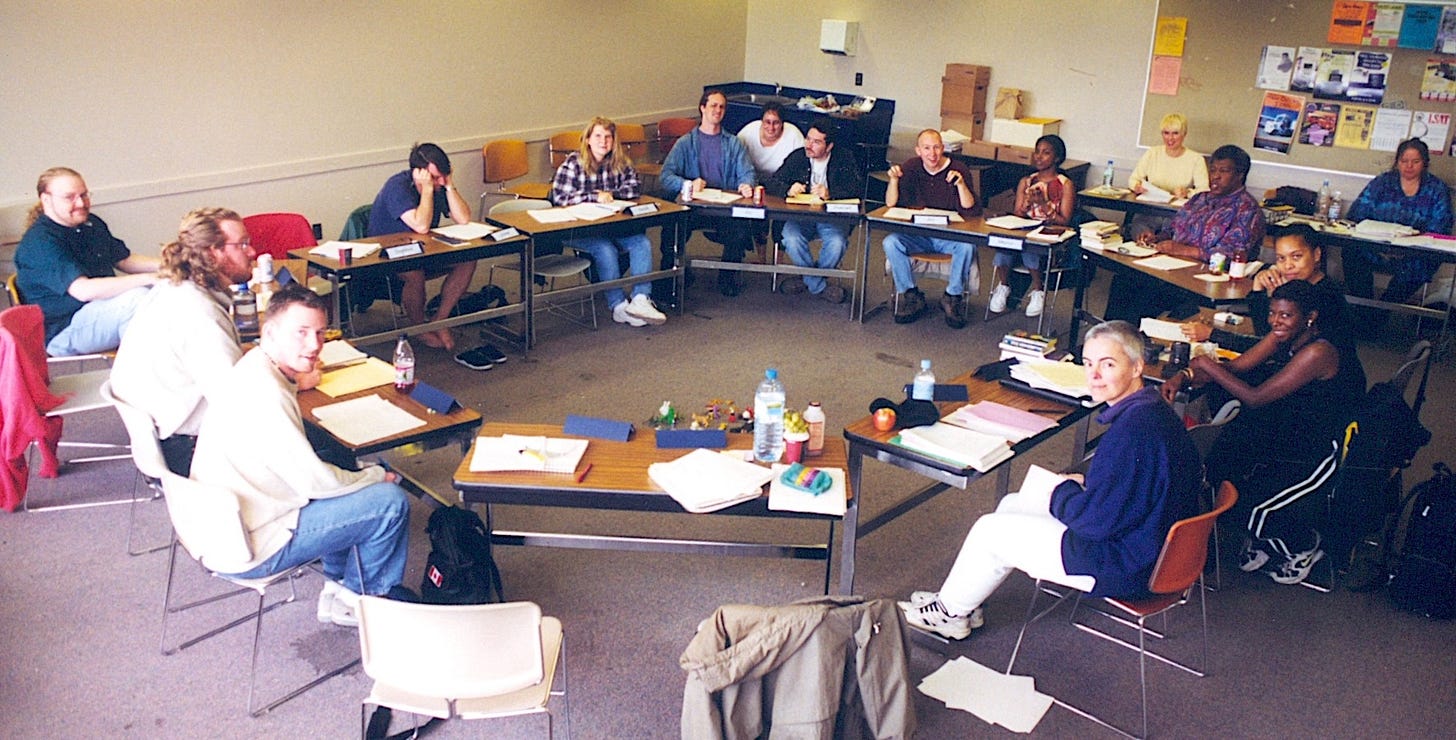

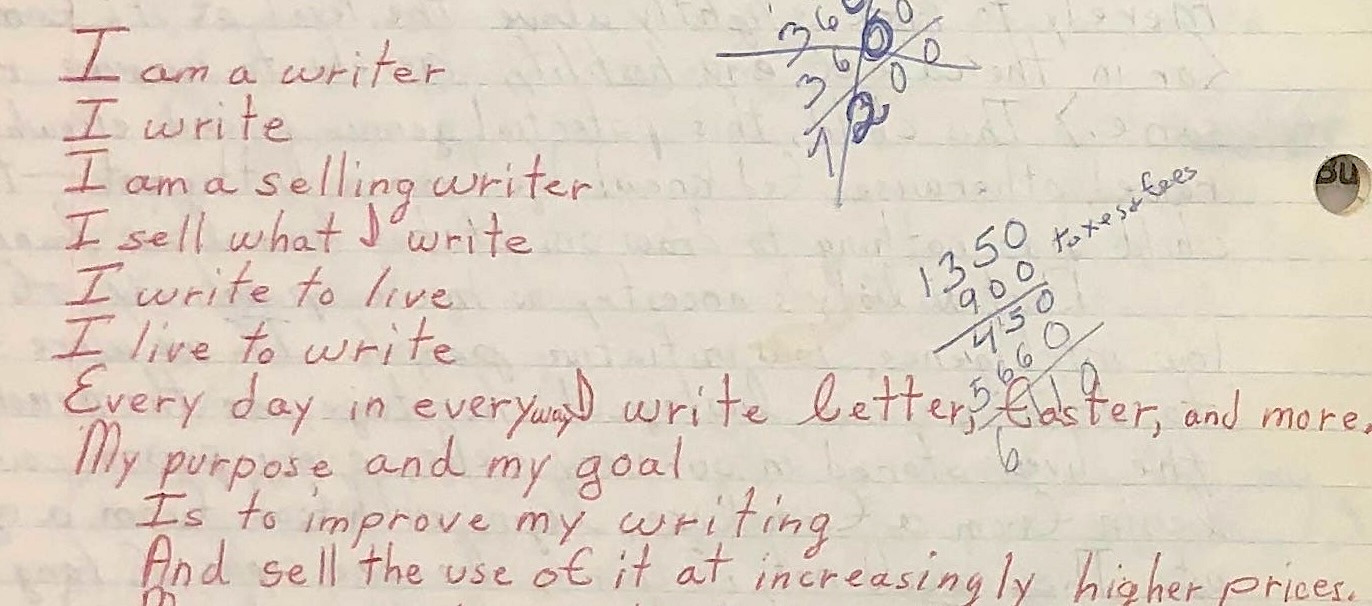
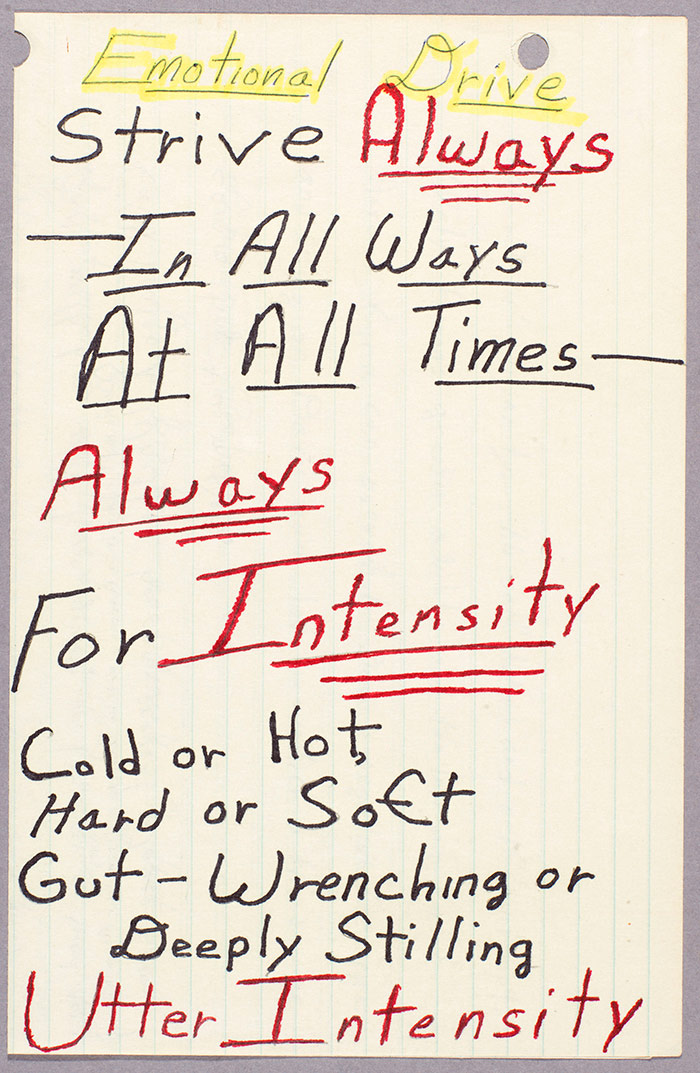
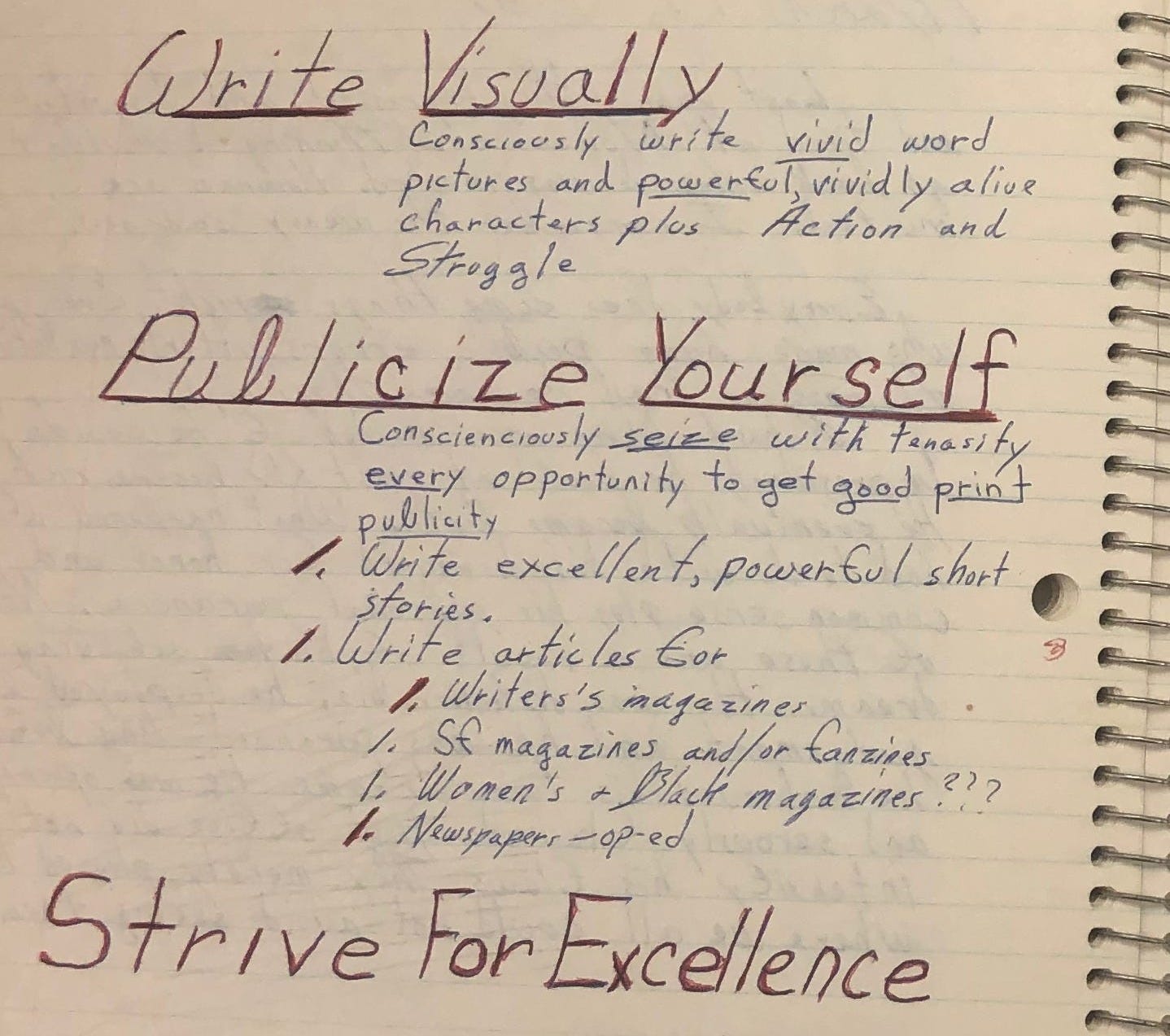


I read Kindred last year and was so struck by the story. As a time traveler/sci-fi writer of young adult novels myself (https://edgeofyesterdaybooks.com) I was struck especially by how Dana's time travels initiated, how she came back-and-forth to different times--often to scenes of violence and always disoriented--and how it felt to try to explain to her poor, bewildered and frightened-for-her husband in her present what was happening to her, a modern woman: racism, enslavement and the worst kinds of violence as totally acceptable in that time past.
Her scenes are vivid and hold nothing back. Last year, when I was in Paris, I stumbled on a graphic novel adaptation of Kindred, which brings the pictures in my head to the page. Not sure how I feel "seeing" the story in this way versus how I imagined these characters, including Rufus, the young boy she saves over and over who becomes her master.
You are so fortunate to have studied with her, Christine! I want to check out your books.